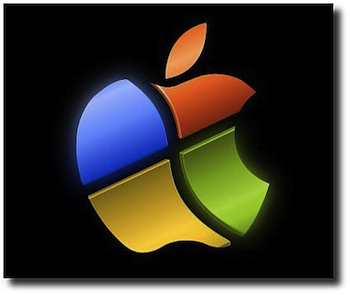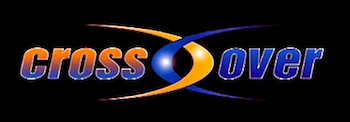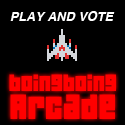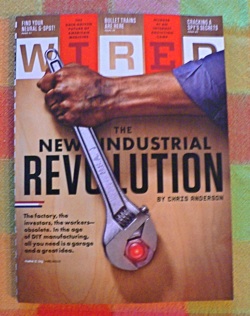 They say the best blogging is about story-telling. So, let me tell you one of mine — how I came to write this post. First, some background: I run a Windows-free environment, and have for a long time. I put in my time with “Windoz” many years ago, and quickly left it behind. I can’t even remember what version of the Mac OS I was using when that happened, but it was several iterations ago, and I upgraded through all those OS upgrades, loving the enhancements every step of the way. There are many reasons I became an Apple fanboy, and have happily stayed that way — but the biggest of them all was simply ease of use, across the whole Mac experience, and the much lower hassle factor all around. I value my time. I don’t want to be a computer geek. I just want to get stuff done. Mac fits the bill.
They say the best blogging is about story-telling. So, let me tell you one of mine — how I came to write this post. First, some background: I run a Windows-free environment, and have for a long time. I put in my time with “Windoz” many years ago, and quickly left it behind. I can’t even remember what version of the Mac OS I was using when that happened, but it was several iterations ago, and I upgraded through all those OS upgrades, loving the enhancements every step of the way. There are many reasons I became an Apple fanboy, and have happily stayed that way — but the biggest of them all was simply ease of use, across the whole Mac experience, and the much lower hassle factor all around. I value my time. I don’t want to be a computer geek. I just want to get stuff done. Mac fits the bill.
Today, thanks to the amazing advances of the Apple OS over the years and other Apple software offerings, I don’t have a single need to run a Windows app on my Mac. However, I realize many people do — they have a work reason, perhaps, to run Outlook, one of the Windows versions of Microsoft Office, or Internet Explorer, or other apps that just don’t (for some crazy reason) yet have a Mac version. I’ve been running the same Mac version of MS Office now for more than a decade; it works fine. (So, I can’t say I run a completely Microsoft-free environment; just a Windows-free one.) I also realize there’s another big universe of Mac users out there who want to run Windows on their machines: gamers. We’re not talking a work reason here (I don’t think!), but this is a big market. There are many more games available for the Windows platform than for Mac — though that is changing somewhat, since so many game apps are continually being introduced for the Mac iOS — that is, for the iPhone, iPod Touch, and iPad. (And the new “GameCenter” in Mac iOS 4.1, due next week, moves Apple even further into the games market.)
But why I am writing about running Windows on a Mac when I don’t have a need myself, and I’m certainly not a gamer? Well, before I tell you about “CrossOver Mac,” here’s why: I had a personal experience recently helping my daughter. She’s also a longtime Mac user, but she needed to run a single Windows app for her business, which was required by a government agency she had to deal with. So, I told her, sure, I’d help her figure out how she could do that. I of course knew about two programs designed to do that, called “Parallels” and “VMware Fusion,” either of which we could buy (for about $80, I think). And I told her I could help her get one of those installed on her Macbook. But we really didn’t like the idea of spending even that much money to run one little Windows app, maybe once a month — plus a friend, Steve Borsch, told me Windows doesn’t really run all that snappy with those programs, anyway.
But I was starting to think about buying one of those programs when another local friend, Gary Doan, said, “Wait, what about Boot Camp? That won’t cost you anything.” Apple started bundling that program with OS 10.5 and now 10.6, and you just need the original install disk to fire that up. Yes, plus a bonafide version of Windows, with an install disk — and we would have had to buy that. Cheapest I could find: an OEM version of 32-bit Windows 7 for $110 at our local Micro Center (closest thing we have to Fry’s here in MN). You can’t even buy Windows XP anymore, I learned, so that was not a cheaper option. That, combined with an onerous 14-page manual that Apple said you must print out and have by your side as you go through the detailed Boot Camp installation and configuration process, was making me start to think, screw this. Then I learned my daughter’s Macbook only has a half a gig of RAM, and would need at least 1G to run OS 10.6, which I wanted to upgrade her to, and preferably 2G. That would have cost me at least another $60, even if I installed the memory myself, which I really didn’t want to do. I thought, wait a minute, we’re getting close to $200 here — for something we really don’t want to do! Plus untold hours of my time screwing around to get it running.
Long story short: I found a brand-new HP Mini netbook on sale for $269 at OfficeMax (thanks to a friend’s tip), and I had a $30 off coupon! I told her I’d gladly pay for half of that. I figured I was coming out way ahead, considering I wouldn’t have to invest any time at all if we went with this option. Plus, she wanted a second computer anyway, just for email and web use on another floor of her house, and the HP Mini came with built-in wifi capability, so it was a pretty cheap option for that. Now, we’re both happy.
 Which brings me to the subject of my post: there’s a much simpler way to run Windows on an Intel Mac — and it might just work for you. I wish I’d have known about it a week or two earlier, and I could have saved even more time (and money). It’s a product called CrossOver Mac, from the playfully named CodeWeavers, based in St. Paul, MN.
Which brings me to the subject of my post: there’s a much simpler way to run Windows on an Intel Mac — and it might just work for you. I wish I’d have known about it a week or two earlier, and I could have saved even more time (and money). It’s a product called CrossOver Mac, from the playfully named CodeWeavers, based in St. Paul, MN.



 If you’re a designer creating websites, web applications are someone working with a developer on a project or initiative, then this workshop and seminar will empower you with the things you should know before you design your first website; what the content management system
If you’re a designer creating websites, web applications are someone working with a developer on a project or initiative, then this workshop and seminar will empower you with the things you should know before you design your first website; what the content management system  I’m personally aware of over 40 projects here in flyover country that are not only leveraging — but are wholly reliant on —
I’m personally aware of over 40 projects here in flyover country that are not only leveraging — but are wholly reliant on — 
 By 8:00 am, somewhere between 300 and 400 software developers, startup founders (and hopefuls), web designers, interactive marketers, local media reporters, angels, VCs, and other investors will start converging in one place as they seldom do in any venue in these parts, at any other time throughout the year.
By 8:00 am, somewhere between 300 and 400 software developers, startup founders (and hopefuls), web designers, interactive marketers, local media reporters, angels, VCs, and other investors will start converging in one place as they seldom do in any venue in these parts, at any other time throughout the year. They come to talk shop, learn, share tips, listen to presentations on the latest tech developments and tools, share war stories, listen to startup pitches, and (of course) take notes, blog, and Twitter about all the proceedings on the laptops and smart phones they never seem to have far from their sides. …
They come to talk shop, learn, share tips, listen to presentations on the latest tech developments and tools, share war stories, listen to startup pitches, and (of course) take notes, blog, and Twitter about all the proceedings on the laptops and smart phones they never seem to have far from their sides. … 